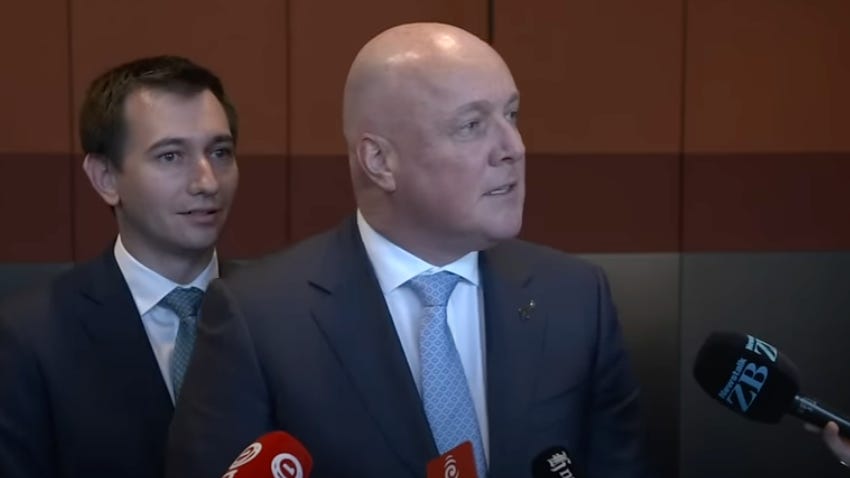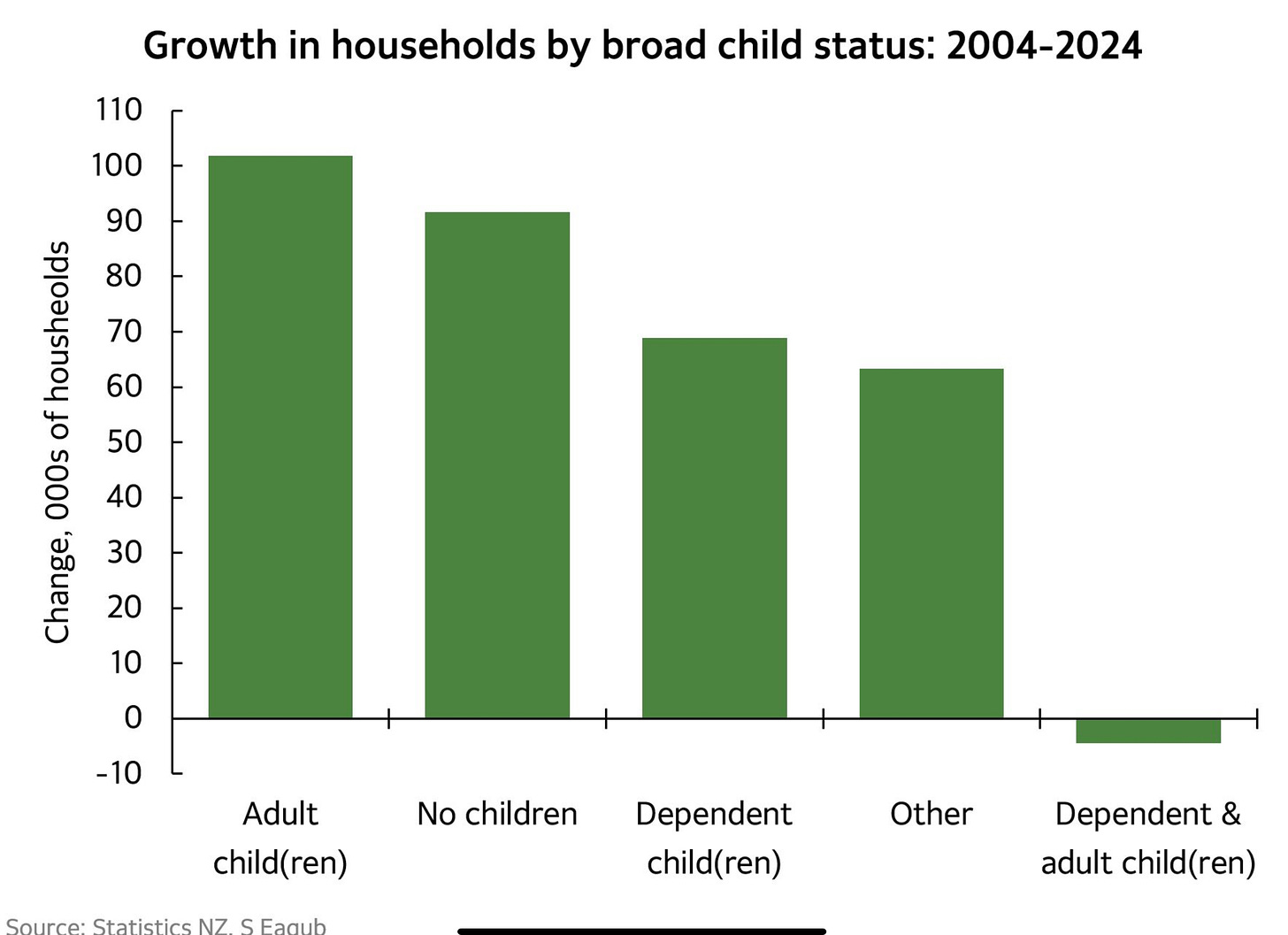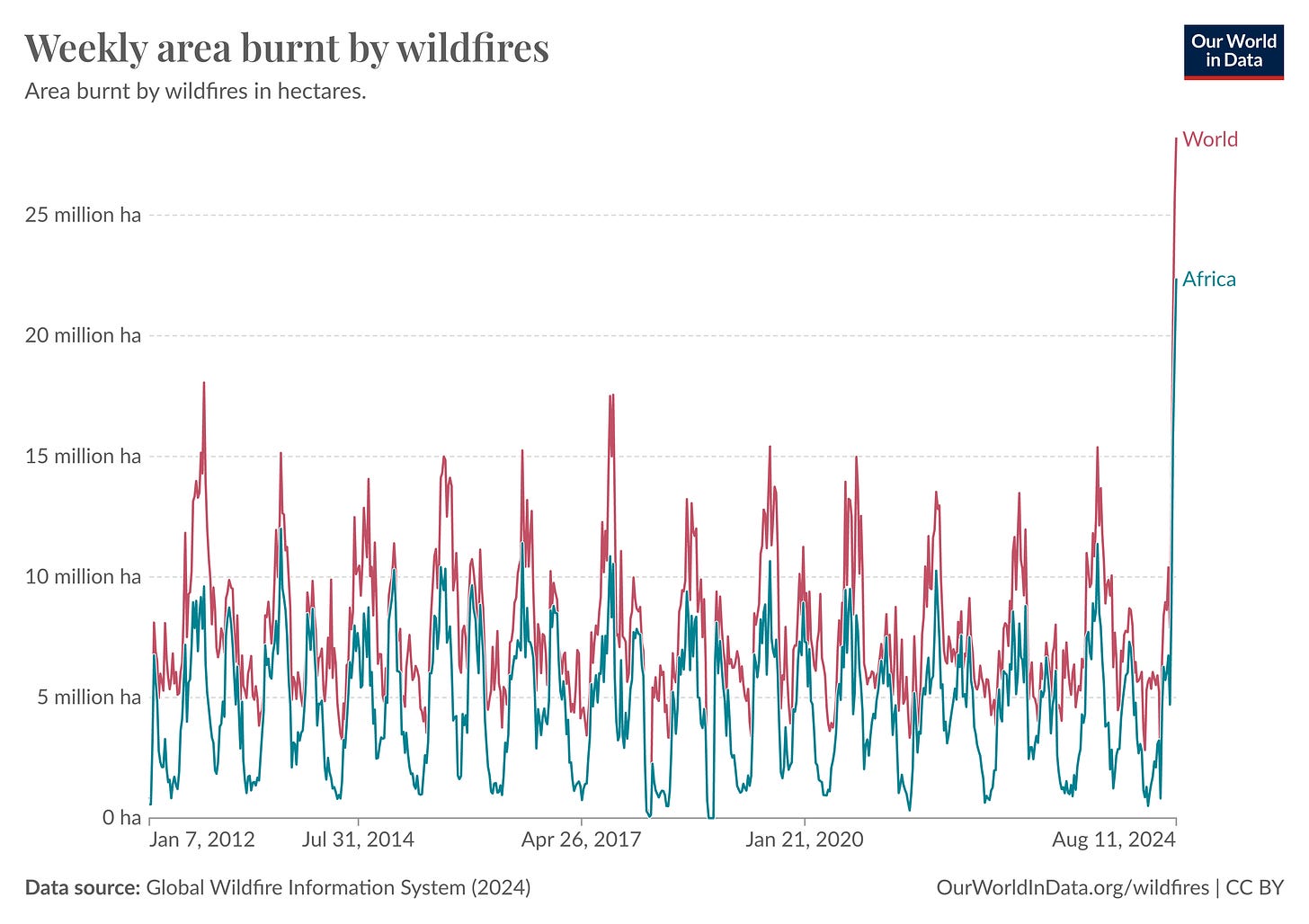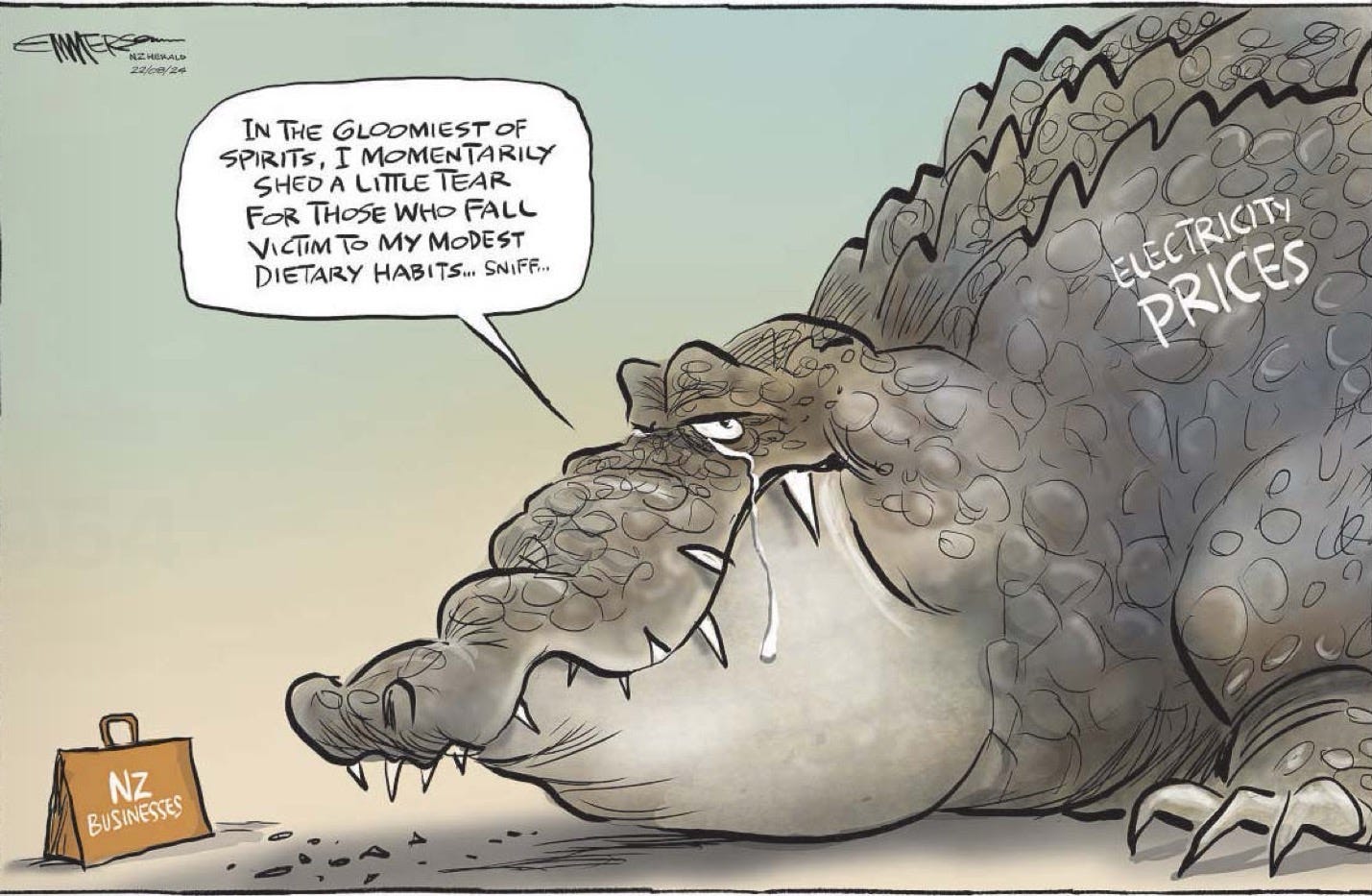Mōrena. Long stories short; here’s my top six things to note in Aotearoa’s political economy around housing, climate and poverty on Thursday, August 22:
PM Christopher Luxon appeared to torpedo his own ‘Government of Infrastructure’’s agenda for ‘Going for Housing Growth’ with an angry rant of a speech telling mayors and councillors they would have to build half the infrastructure to deal with rapid population growth without any more Government cash.
Those councillors and mayors were shocked at the tone of the speech, which had been flagged as a plea for partnership and a promotion of ‘city deals’ where Government and councils work together.
In solutions news, electricity economists have called for market reform and a subsidised mass rollout of cheap rooftop solar and batteries to add generation supply and storage to a system under intense stress from a lack of past investment and a dry winter, which climate change will make more regular.
In quote of the day, Wellington grandee John Allen hit back at the PM at the conference, saying: “You don't line by line cut your way to a better country.”
In chart of the day, Shamubeel Eaqub finds a surprising surge in the number of adult children living at home with their parents, partly because of worsening housing affordability.
In our climate graphic of the day, Our World in Data points out global wildfire damage exploded to a record-high in August, with Africa the main source, including 6% of Angola’s land area and 2.5% of the Democratic Republic of Congo’s land area burning in just one week.
The Top Six for Thursday, August 22
1. PM lectures councils on white elephants & distractions
Luxon offers ‘city deals’ with one hand, slaps councils with other hand

PM Christopher Luxon delivered an angry lecture of a speech to the nation’s mayors and councillors at the annual Local Government NZ conference in Wellington yesterday, choosing to attack councils for their ‘white elephants and non-delivery’ and telling them the Government would not help them build infrastructure for fast-growing cities with ‘cold, hard cash’.
It was a strange decision, given councils will be paying for, planning and building at least half of the infrastructure the Government needs for its ‘Going for Housing Growth’ strategy and to make its promise of being the ‘Government for Infrastructure’ a reality.
Here’s a few excerpts from Luxon’s speech (bolding mine):
“We’re doing our part. And I believe it’s time for local government to do theirs.
“Ratepayers expect local government to do the basics and to do the basics brilliantly. Pick up the rubbish. Fix the pipes. Fill in potholes. And more generally, maintain local assets quickly, carefully, and cost effectively.
“But nothing in life is free, and ratepayers expect to pay for it in exchange. But what they don’t expect to pay for is the laundry-list of distractions and experiments that are plaguing council balance sheets across the country.” PM Christopher Luxon in a speech to LGNZ’s annual conference.
He then chose to attack Wellington City Council for its spending on the new Takina conference centre, where he was speaking.
“The building we’re in today is a classic example. With pipes bursting and other infrastructure under pressure, Wellington City Council decided to spend $180 million of ratepayers’ money on a convention centre, which, according to public reporting, is now losing money.
“It looks very nice, and it’s very nice that politicians like us have another expensive room to deliver speeches in, but can anyone seriously say it was the right financial decision or the highest priority for Wellington given all of its challenges?
“Ratepayers are sick of the white elephants and non-delivery. So, my challenge to all of you is to rein in the fantasies and to get back to delivering the basics brilliantly.” Christopher Luxon
Referring to calls from councils for capital and funding help for infrastructure to deal with population growth enabled by the Government’s migration policies, Luxon lashed back:
“I have to be honest with you – the previous government might have taken that approach, but the party is over. There is no magic money tree in Wellington, thanks to the previous government's economic mismanagement and vandalism.
“Shifting your costs onto taxpayers doesn’t save anyone any money. It means ratepayers pay more tax, and are left with less of their own money, to meet the cost of a slightly smaller rates bill.
“Or it means we spend less on health and education so that councils can avoid tightening their belts exactly as Kiwi families, businesses and central government have had to do across New Zealand.
“Yes, I’m sure that will be very popular among councillors, who want to spend money without raising rates to pay for it. But if any of you think those will be the terms of a regional deal, it’s time to come back to reality.
“We do want to work closer together – and there will be new revenue tools for councils, where that makes sense – but the days of handouts are over.”
Luxon went on to say Cabinet was investigating placing revenue caps on councils’ non-core activities, as is done in some Australian states. After telling them he wouldn’t help with funding and that they were useless, he asked for their help.
“In conclusion, we want a productive and constructive relationship with local government – one that enables your growth and development and gives you the tools you need to pay for it.
“In central government, we’re getting on with the job. We're stopping wasteful spending, shifting money from the back office to the frontline, setting clear delivery targets and expectations, prioritising what to do and what not to do, and letting Kiwis keep more of what they earn. My parting message: it’s time for you to do the same.
“Go line by line, stop the wasteful spending, remove the bureaucracy, focus on better customer service, and end the projects that aren’t delivering value for money. I’m confident that working together, we can achieve a lot for New Zealanders – better infrastructure and more resilient communities, all at an affordable price for ratepayers.” Christopher Luxon
2. It went down like a cup of cold sick
Mayors and councillors hit back at rant
Councillors and mayors in the room were palpably shocked at both the tone and the content of the speech. Wellington Mayor Tory Whanau responded shortly after in a LinkedIn post:
“The speech missed the opportunity to talk about how we solve our shared problems, and instead punched down, telling us to ‘tighten our own belt’ before asking for central government support.
“Rates have jumped up across councils all over the country, whether they be left-leaning, right-leaning or otherwise. This synchronised rates rise has not happened in a vacuum.
“For decades, and I mean decades, Councils in this country have had very limited scope to raise revenue to provide the critical services that make our towns and cities tick. Our two main options have been user fees and rates.
“Rates, because it is politically difficult to do otherwise, have been kept artificially low for years. This has meant the appropriate investment in key infrastructure, like our pipes for example, has been kicked along to the next council and the next.
“Barking at us that we need to be better is tired and unhelpful and doesn’t solve our shared problems. Lets work together.” Wellington Mayor Tory Whanau via LinkedIn.
Wellington Regional Councillor Thomas Nash tweeted:
“I try to be constructive and measured in my criticism of Ministers so it truly pains me to say this, but the Prime Minister’s speech to local government just now was one of the most mana diminishing, paternalistic and visionless speeches to a group of people I have ever heard.
“He did not acknowledge Wellington’s Mayor or Chair or mana whenua who had welcomed him and others into the whare and then went on to insult the whare he had been welcomed into. Just astonishing for the Prime Minister of New Zealand in 2024.
“He announced his plan to introduce performance targets for councils seemingly without realising that council LTP processes already do that job and are far more stringent and transparent on asset management, financial strategy, etc than anything central government agencies have.
“He offered no positive vision whatsoever for the future of the country or for local government, simply talking down to the hundreds of people elected by their local communities with “I know best” criticism punctuated by vague references to regional deals and revenue tools.” Thomas Nash via X
3. Solutions: ‘Roll out solar with your ears pinned back’
Electricity economists call for reform and mass solar rollout
The Government is pushing ahead with plans to import LNG and build new gas-fired electricity generation that could take several years and hundreds of millions of dollars, but others are calling for faster, cheaper and more effective interventions.
Auckland University Energy Economics Professor Stephen Poletti, Victoria University Professor Bruce Mountain and Victoria University Scholar Geoff Bertram yesterday published a joint Op-Ed via The Conversation titled: NZ’s electricity market is a mess. Rolling out rooftop solar would change the game.
“To alleviate the energy supply shortfalls primarily attributable to low rainfall, we suggest rapidly expanding cheap solar photovoltaics (PV), specifically rooftop solar for ordinary households. Our soon-to-be-published research suggests such capacity can be expanded quickly and cheaply.
“Based on the Australian experience, we estimate modest subsidies for the capital cost of installing solar rooftop systems would add the equivalent of 700 megawatts a year (2% of the total) to the electricity supply. This significant new supply will reduce electricity prices.” Poletti, Mountain and Bertram via The Conversation
4. Quote of the day
A riposte to the PM from one of Wellington’s grandees
“You don't line by line cut your way to a better community. You don't line by line cut your way to a better country.” WellingtonNZ CEO John Allen in a keynote address yesterday at the LGNZ conference
5. Chart of the day
What happens when housing becomes more unaffordable

“I had not expected the largest growth to be in households with adult children. There are many good reasons, including the recent pandemic, high rents and house prices, and maybe the family home is much larger and nicer than a flat (if you can find one, rental availability is at historic lows).
“Anecdotally, some adult children move back to the family home to save a deposit to buy their own home (saving on rent, which is a pragmatic version of the bank of mum and dad, for those mum and dads who can’t stump up big amounts towards a house deposit for children).
“Also, some incidence of separations (median age of separation is 45 for women and 48 for men) leading to adult children living with parents, at least for a period of time.” Independent Economist Shamubeel Eaqub via LinkedIn
6. Climate graphic/chart/pic of the day
One of the feedback loops

“This August saw an abrupt increase in the area burned by wildfires, with most of this rise coming in a single week. This global weekly burn rate was 64% higher than any previous week during this period. This data comes from the Global Wildfire Information System.
“This dramatic rise was mostly driven by severe wildfires in Africa, where approximately 22 million hectares burned in a week, accounting for around 80% of the global burned area.
“Two countries have been particularly hard-hit — Angola and the Democratic Republic of Congo — where 6% and 2.5% of the total land area have burned in just one week.” Computational Neuroscientist and Data Journalist Veronika Samborska via Our World in Data.
The best of the rest
Top six scoops and deep dives for August 22
Health scoop: The tobacco lobbying plan that worked RNZ’s Guyon Espiner
State care interview: 'Fundamental problems' at Oranga Tamariki, warns Ombudsman NZ Herald-$$$’s Nick Jones
Politics news: Winston Peters casts doubt on PM's position on Treaty Principles Bill RNZ’s Jo Moir
Poverty deep dive: Benefit cut after one missed appointment RNZ’s Amy Williams
State care interview:Couple from 'reverse uplift' speak out for the first time Te Ao with Moana
Justice deep dive: Fairness and equity in the police force RNZ/Newsroom’s The Detail with Sharon Brettkelly
The Kākā’s Journal of Record for August 22
Justice: An independent panel set up by Police Commissioner Andrew Coster and justice campaigner Kim Workman in 2020 and chaired by AUT Professor Khylee Quince published its phase one report on Understanding Police Delivery, which found Māori men were more likely to be stopped, tasered and prosecuted and made 40 recommendations. RNZ
Economy: CoreLogic's August Housing Chart Pack showed that 27% of NZ property purchases were by first homebuyers in July, 5% above the long-term average. Economist Kelvin Davidson says first homebuyers are taking advantage of low deposit lending allowances being offered by banks, with two in every five getting into the property market with a less than 20% deposit.
Economy: Infometrics released its Quarterly Economic Monitor report showing evidence of an "economic crunch", including job declines in seven of 16 regions. Chief executive Brad Olsen said lower interest rates throughout next year as signalled by the Reserve Bank would lay the foundations for economic recovery.
Economy: Commerce and Consumer Affairs Minister Andrew Bayly announced that the Government has placed property developer Du Val Group's entities into statutory management to protect its investors and creditors from further losses. Bayly said the decision follows a recommendation by the Financial Markets Authority based on its ongoing investigations. 1News, Interest, NZHerald
Climate: The Environmental Protection Authority declined fast-track consent for a wind farm in Waiuku, arguing that the project application was rushed and would impact threatened birds and bats. The decision panel said it didn't take account of concerns raised about the effect of the wind farm on property values.
Economy: FIRST Union urged the Government to act to protect workers following Winstone Pulp International (WPI)'s announcement that it may permanently close the Karioi Pulpmill and Tangiwai Sawmill due to high electricity costs. Activity at the pulpmill and sawmill paused in the first week of August, with WPI warning that around two hundred and thirty jobs could be cut. Newsroom, 1News
Finally, some fun things
Cartoon of the day
‘So sad’
Timeline-cleansing nature pic:
Our front garden’s first spring flower
Mā te wa
Bernard















Share this post